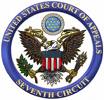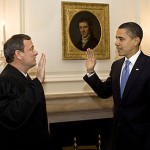Seventh Circuit Week in Review: Prior Crimes Evidence, Career Offender Guideline, and More
 The Seventh Circuit had four new opinions in criminal cases last week. In United States v. Millbrook (No. 07-2931), the court (per Judge Rovner) affirmed the defendant’s conviction and sentence for drug trafficking and other offenses. The defendant’s appeal raised several issues, the most interesting of which was yet another Rule 404(b) question regarding the use of prior crimes evidence. I have blogged about several of these cases recently, criticizing the Seventh Circuit’s deference to poorly justified decisions by district court judges to admit highly prejudicial prior crimes evidence. In Millbrook, the court once again affirmed, albeit with a caution that the case was “at the outer limits of what is permissible under Rule 404(b).”
The Seventh Circuit had four new opinions in criminal cases last week. In United States v. Millbrook (No. 07-2931), the court (per Judge Rovner) affirmed the defendant’s conviction and sentence for drug trafficking and other offenses. The defendant’s appeal raised several issues, the most interesting of which was yet another Rule 404(b) question regarding the use of prior crimes evidence. I have blogged about several of these cases recently, criticizing the Seventh Circuit’s deference to poorly justified decisions by district court judges to admit highly prejudicial prior crimes evidence. In Millbrook, the court once again affirmed, albeit with a caution that the case was “at the outer limits of what is permissible under Rule 404(b).”


